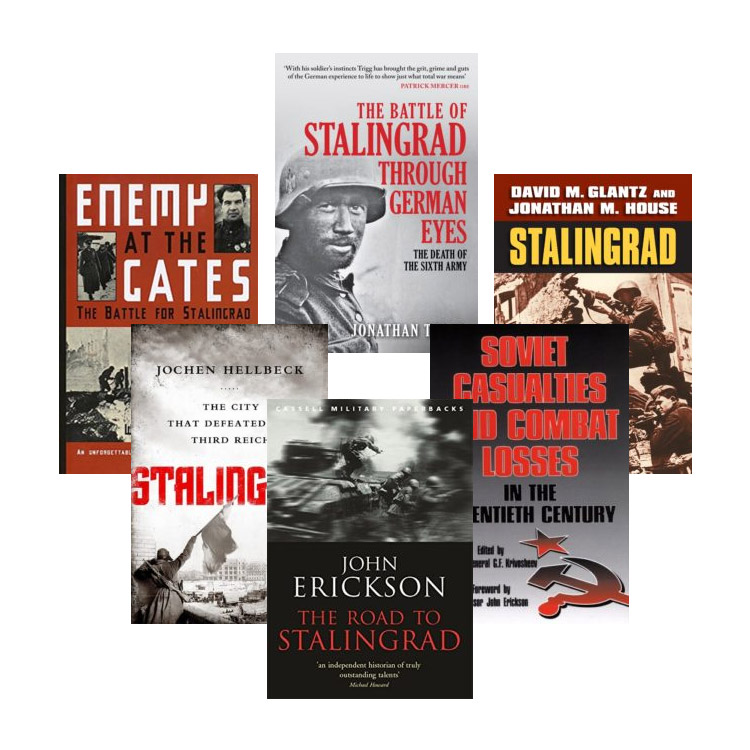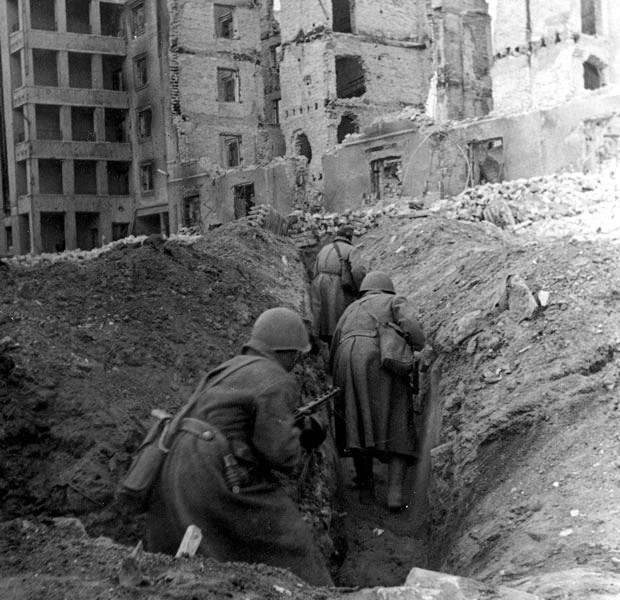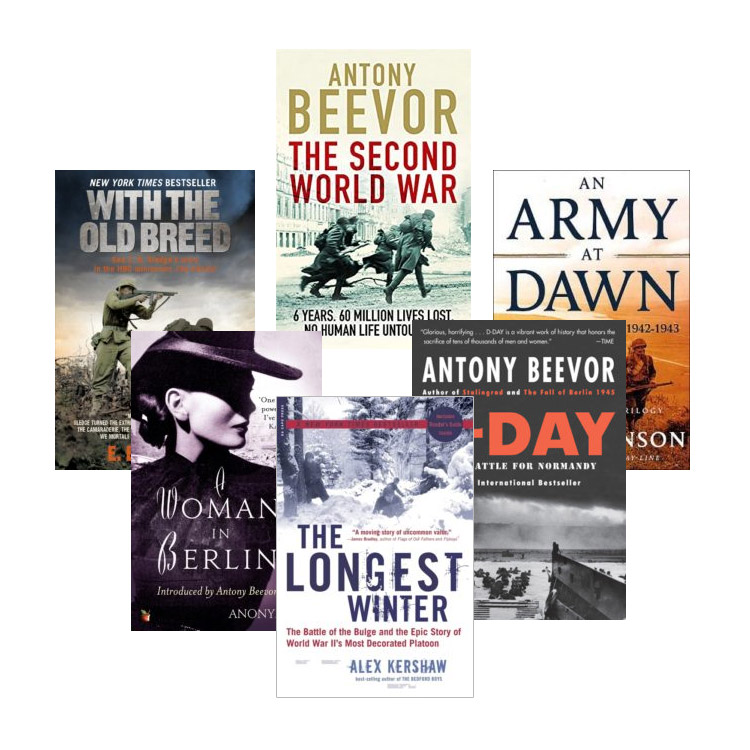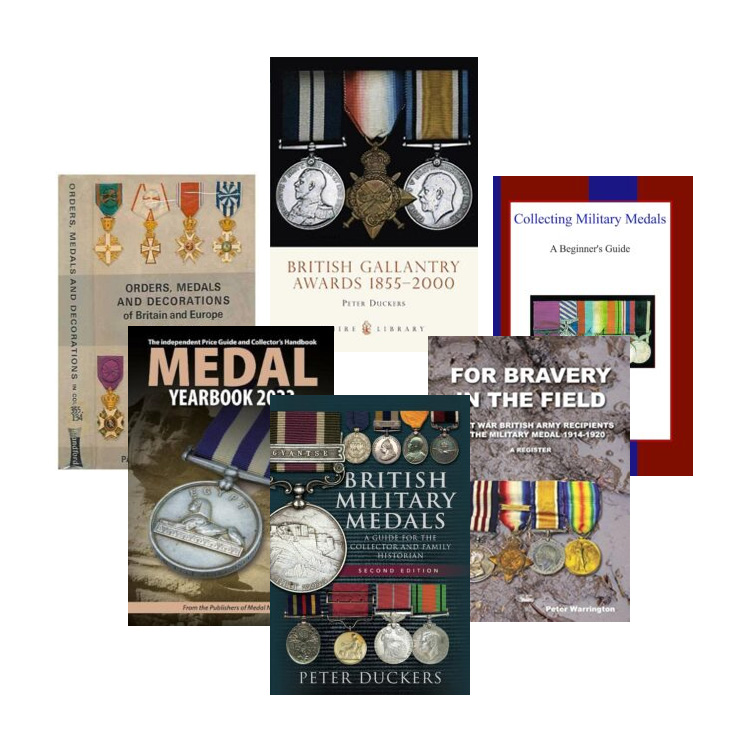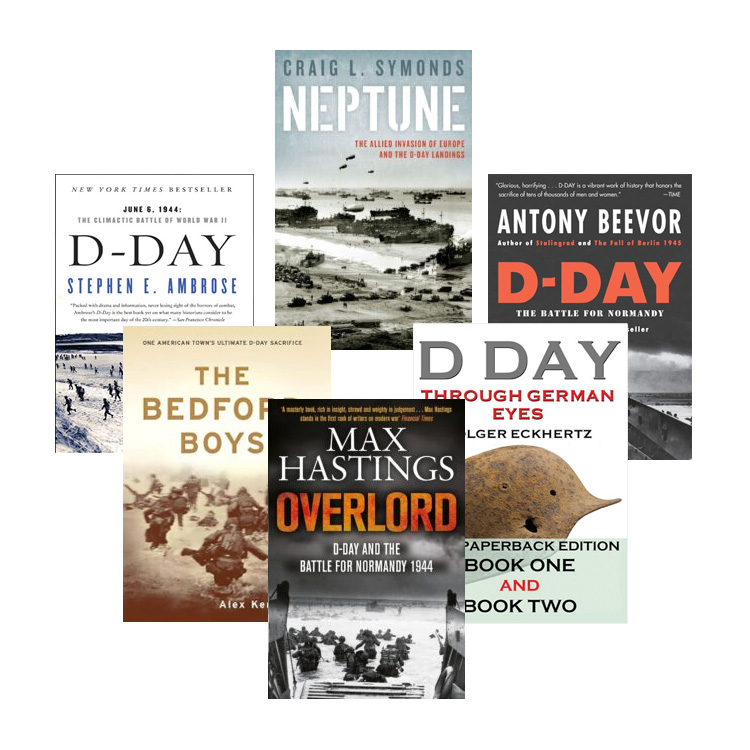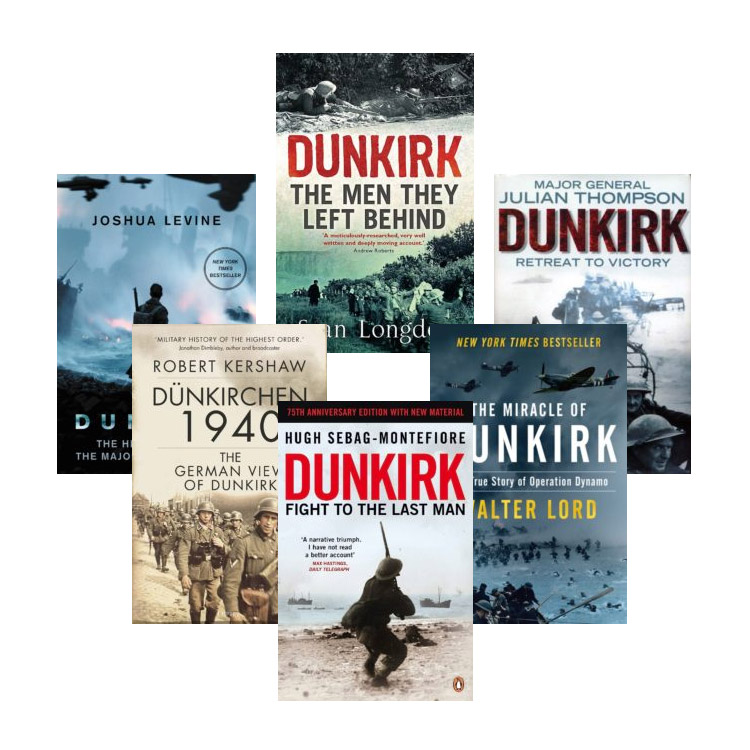The Battle of Stalingrad remains a significant symbol of Soviet resistance and a testament to the human cost of war. It is also remembered as a turning point in World War II and a pivotal moment in the history of the 20th century. In this article, I will share of highest-regarded books about the Battle of Stalingrad and why you should consider reading them.
The Battle of Stalingrad resulted in immense human losses and widespread devastation. Estimates suggest that the combined casualties, including military personnel and civilians, exceeded two million. However, the Soviet Union emerged victorious, demonstrating its resilience and determination to repel the German invasion. Let’s explore this major military battle in some detail though the top books that cover the topic, shall we?
What's the Battle of Stalingrad?
The Battle of Stalingrad was a major military confrontation during World War II that took place from August 23, 1942, to February 2, 1943, between Nazi Germany and the Soviet Union. It was a critical turning point in the war and is widely considered one of the deadliest and most decisive battles in history.
The battle was fought over the control of the city of Stalingrad (now Volgograd) located on the western bank of the Volga River. Adolf Hitler 🔗 sought to capture the city not only for its strategic location but also for its symbolic value, as it was named after Soviet leader Joseph Stalin 🔗. The Soviet Union, however, was determined to defend the city at all costs.
The fighting in Stalingrad soon turned into a brutal and protracted urban warfare, with both sides engaging in intense street-to-street combat. The Soviet forces utilized a strategy of encirclement, gradually surrounding the German troops and cutting off their supply lines. The Germans found themselves trapped in a desperate situation, facing harsh winter conditions, dwindling supplies, and relentless Soviet attacks.
The battle of Stalingrad had profound strategic implications, as it not only halted the German advance into the Soviet Union but also boosted Soviet morale and marked the beginning of a series of Soviet offensives that would ultimately lead to the defeat of Nazi Germany.
The Best Books About The Battle of Stalingrad
If you’re looking for various perspectives about this essential battle of World War II, it can be a good idea to take a look at some of these books. By engaging with them, you will be able to gain a deeper appreciation for the sacrifices, the heroism, and the human drama that unfolded during the Battle of Stalingrad.
Stalingrad: The Fateful Siege 1942-1943 by Antony Beevor
This book provides a comprehensive and gripping account of the Battle of Stalingrad, capturing the strategic maneuvers, personal experiences, and the sheer brutality of the conflict.
Beevor’s meticulous research and vivid storytelling transport readers to the harrowing and brutal realities of the Battle of Stalingrad. With a keen eye for detail, he presents a comprehensive narrative that encompasses the strategic maneuvers, personal experiences, and the monumental human cost of the conflict.
The author weaves together the perspectives of soldiers, commanders, and civilians, providing a multifaceted view of the battle. His writing captures the sheer scale of the struggle, from the initial German advances to the Soviet counteroffensive that encircled and ultimately defeated the German Sixth Army.
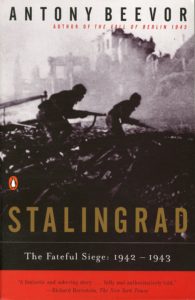
Enemy at the Gates: The Battle for Stalingrad by William Craig
This book offers a detailed narrative of the battle, drawing from firsthand accounts and interviews to provide a vivid portrayal of the intense fighting.
What sets “Enemy at the Gates” apart is its ability to immerse readers in the chaos and horror of the battle. Craig’s narrative style keeps readers on the edge of their seats, transporting them to the front lines and conveying the sheer terror and sacrifice endured by those involved. The book does not shy away from the grim realities of war, providing a visceral and unflinching look at the ravages of combat.
In addition to its captivating storytelling, “Enemy at the Gates” offers valuable insights into the strategies and tactics employed by both the German and Soviet forces. Craig provides a balanced view of the battle, drawing from a wide range of sources to present a comprehensive and nuanced analysis of the conflict.
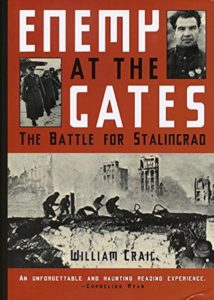
The Battle of Stalingrad Through German Eyes: The Death of the Sixth Army
The Battle of Stalingrad Through German Eyes: The Death of the Sixth Army offers a unique and insightful perspective on the Battle of Stalingrad. This book presents firsthand accounts and personal testimonies from German soldiers, providing a glimpse into their experiences, emotions, and the ultimate defeat of the Sixth Army.
With a focus on the German perspective, the book offers valuable insights into the challenges, hardships, and disillusionment faced by the German forces during this critical battle. It serves as a valuable addition to the extensive literature on the Battle of Stalingrad, shedding light on the human side of the conflict from the German standpoint.
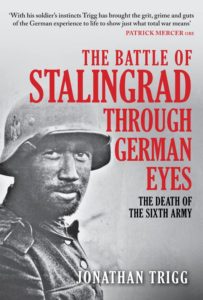
Stalingrad: The City that Defeated the Third Reich by Jochen Hellbeck
Hellbeck examines the battle from the perspective of ordinary Soviet citizens, drawing on diaries, letters, and interviews to portray the human experiences and resilience during the siege.
This book is a compelling and thought-provoking book that explores the human dimension of the Battle of Stalingrad. Hellbeck delves into the experiences of the city’s residents, soldiers, and political operatives, offering a unique perspective on their contributions to the Soviet victory. By delving into personal diaries, letters, and interviews, Hellbeck paints a vivid picture of the collective resistance and determination displayed by the people of Stalingrad.
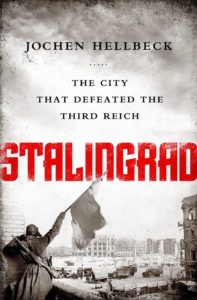
Stalingrad: Anatomy of an Agony by V.E. Tarrant
This book offers a detailed analysis of the battle, including the military strategies, leadership decisions, and the psychological aspects that shaped the outcome.
In this book, the author delves into the strategic, operational, and human aspects of the conflict, providing a thorough analysis of the factors that shaped the battle’s outcome. With meticulous research and insightful narrative, the book dissects the key events, military tactics, and the experiences of soldiers on both sides. It offers a balanced perspective, shedding light on the immense suffering and sacrifices endured by all those involved.
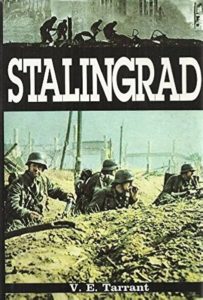
The Battle of Stalingrad: The Definitive Documentary History by David M. Glantz and Jonathan House
This meticulously researched book provides a comprehensive and objective analysis of the battle, drawing from archival sources and Soviet records.
This documentary history presents an extensive collection of primary sources, including official documents, letters, diaries, and firsthand accounts from participants on both sides of the conflict. Through these authentic sources, readers gain unparalleled insights into the strategic decisions, tactical engagements, and the human experiences that shaped the battle. The meticulous curation of these documents provides a comprehensive and objective perspective on the events leading up to the battle, the course of the conflict, and its aftermath.
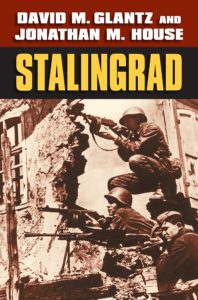
To the Gates of Stalingrad: Soviet-German Combat Operations, April-August 1942 by David M. Glantz
This book focuses on the military operations leading up to the Battle of Stalingrad, providing valuable insights into the Soviet and German strategies.
Focusing on the military operations from April to August 1942, Glantz delves into the strategic maneuvers, command decisions, and the evolving dynamics between the Soviet and German forces. With a wealth of archival sources and detailed analysis, the book offers a comprehensive understanding of the military campaigns and the factors that shaped the battle.
Glantz’s expertise in Soviet military history shines through as he provides a balanced and thorough examination of the Soviet-German combat operations during this crucial phase.
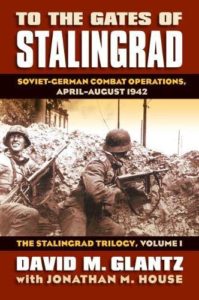
Soviet Casualties and Combat Losses in the Twentieth Century by G.F. Krivosheev
While not solely focused on Stalingrad, this book provides statistical data and analysis of the losses suffered by the Soviet Union during World War II, including the Battle of Stalingrad.
Krivosheev’s work draws from extensive archival sources, official records, and statistical analysis to provide a comprehensive and accurate account of the Soviet Union’s military losses.
This book serves as a valuable resource for researchers, historians, and anyone seeking a deeper understanding of the human cost of war and the sacrifices made by the Soviet military during the turbulent twentieth century.
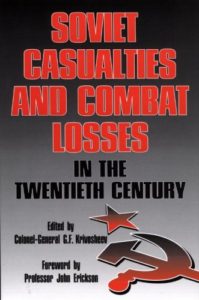
The Road to Stalingrad by John Erickson
This book offers a comprehensive analysis of the political, military, and social factors that led to the Battle of Stalingrad, providing a broader context for understanding the conflict.
Erickson’s meticulous research and scholarly approach provide readers with a deep understanding of the complex political, strategic, and military developments that shaped the path to Stalingrad. The book not only focuses on the military aspects but also delves into the broader context, including the political dynamics, social factors, and the experiences of both the Soviet and German forces. Erickson’s writing is engaging and accessible, making this historical narrative a captivating read.
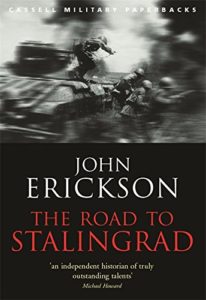
Stalingrad: Memories and Reassessments edited by Joachim Wieder and Günther W. Gellermann
This compilation of essays and personal accounts offers diverse perspectives on the battle, providing a nuanced understanding of its impact on individuals and nations.
Through a collection of firsthand testimonies from veterans, civilians, and historians, this book offers a diverse range of perspectives that shed light on the multifaceted aspects of the battle. The editors have skillfully curated these accounts to provide a nuanced and comprehensive understanding of the human experiences, emotional impact, and historical significance of Stalingrad. The book invites readers to delve into the memories and reflections of those who lived through this monumental battle, fostering a deeper appreciation for the complexities and lasting effects of the conflict.
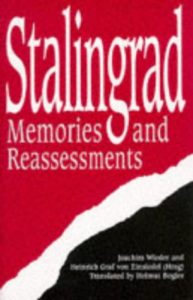
Conclusion: Reading About The Battle of Stalingrad
Whether it’s delving into the military strategies, understanding the personal experiences of soldiers and civilians, or exploring the wider impact of the battle, these books will provide you with a multifaceted and comprehensive understanding of Stalingrad.
From Antony Beevor’s gripping and meticulously researched account to personal memoirs and eyewitness testimonies, these books illuminate the complexities of the conflict, the experiences of those involved, and the broader historical context surrounding the battle.

